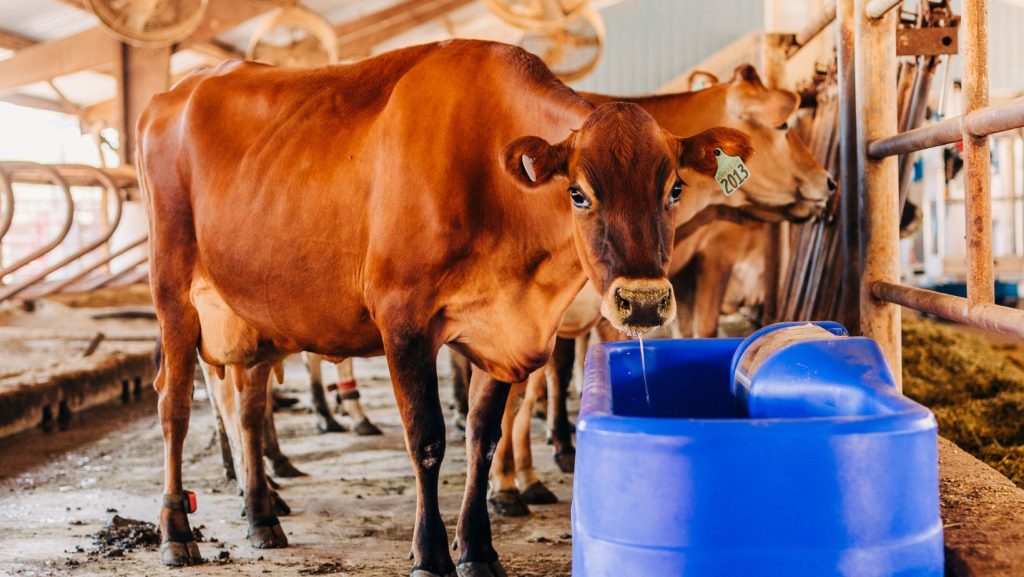
Farm animals, much like humans, need plenty of water to stay healthy and productive. Yet, the specific water needs can vary widely among different species. Whether you’re raising cattle, sheep, goats, or poultry, understanding these requirements is essential to maintaining a thriving farm. This blog post will explore the hydration needs of various farm animals and show how modern livestock waterers can help meet these needs efficiently.
The Vital Role of Hydration in Farm Animal Health
Proper hydration is fundamental for all living beings, and farm animals are no exception. Water is essential for digestion, nutrient absorption, temperature regulation, and waste elimination. Without adequate hydration, farm animals can suffer from a range of issues, from reduced growth rates to severe health complications.
For instance, water scarcity can lead to decreased milk production in dairy cattle, poor wool quality in sheep, and reduced egg production in poultry. Ensuring that farm animals have access to clean, fresh water is not just a matter of health but also one of productivity and economic efficiency.
Water Requirements of Different Farm Animals
Understanding the specific water requirements of different farm animals helps farmers make informed decisions that support both animal welfare and productivity. Each species has unique hydration needs influenced by factors such as size, age, diet, and environmental conditions. By recognizing these differences, farmers can better ensure that their livestock remains healthy and thrives in their care.
Cattle
Cattle have significant water needs, which can vary based on their size, age, and environmental conditions. On average, an adult cow drinks between 10 to 20 gallons of water per day. Lactating cows may require even more, as water is a primary component of milk. Ensuring adequate water intake is vital for maintaining milk production and overall herd health.
Water quality and availability directly also impact cattle’s feed intake and digestion. Clean, readily accessible water encourages cows to eat more, leading to better growth rates and milk yield. Therefore, farmers must prioritize providing ample clean water to their cattle.
Sheep
Sheep are generally efficient water users, but their needs can vary depending on their diet and the climate they live in. A sheep’s daily water intake ranges from 1 to 4 gallons. Sheep grazing on succulent green pasture may drink less than those eating dry hay or grain.
Water is crucial for wool production, as hydration affects wool fiber quality and growth. Dehydrated sheep may produce brittle, low-quality wool. Consequently, ensuring that sheep have consistent access to water is crucial for both their health and wool quality.
Goats
Goats are known for their adaptability, but they still have specific hydration needs to maintain optimal health. An adult goat typically drinks between 1 to 3 gallons of water per day, depending on its diet, size, and environmental conditions.
Adequate water intake is essential for goats’ digestion and nutrient absorption. Water aids in the breakdown of fibrous plant materials, ensuring that goats receive the necessary nutrients from their feed. Farmers should ensure that water sources are clean and accessible to encourage regular drinking.
Poultry
Water is a critical component of poultry health and productivity. Chickens, for example, need water to regulate their body temperature, especially during hot weather. An average chicken drinks about a pint of water daily, but this can increase with higher temperatures.
Water is also vital for egg production. Hens deprived of adequate water may lay fewer eggs or stop laying altogether. Ensuring that poultry has access to cool, clean water is essential for maintaining both their health and productivity.
How Livestock Waterers Meet These Needs
Livestock waterers are designed to provide a consistent and clean water supply for farm animals. These automatic systems ensure that animals always have access to fresh water, reducing the labor required to manually refill water troughs. By maintaining a steady supply of clean water, livestock waterers help prevent contamination and promote better health among farm animals.
Addressing Specific Needs with SPI’s Livestock Waterers
Polyethylene Construction
SPI’s livestock waterers are made from durable polyethylene, which is corrosion-free and safe for animals. This material is easy to clean and maintain, reducing the risk of water contamination. Farmers can rely on these waterers to provide a long-lasting and hygienic solution for their livestock.
Innovative Features
SPI’s waterers come with several innovative features designed to optimize water delivery. Insulated bases help maintain water temperature, preventing freezing in the winter and overheating in the summer. Float-operated valves ensure that water levels remain optimal, so animals always have access to what they need.
Product Range
SPI offers a variety of livestock waterers to suit different farm environments and animal needs. The Electric Series provides heated units to prevent freezing, the Energy-Free Series uses natural insulation, and the XL Series offers large capacity solutions for bigger herds. Each product is designed to meet the specific hydration needs of various farm animals efficiently.
Conclusion
Ensuring that farm animals receive adequate water is essential for their health, productivity, and overall well-being. Whether you’re raising cattle, sheep, goats, or poultry, understanding their specific hydration needs is crucial. SPI’s range of livestock waterers provides effective solutions to meet these needs, offering durability, innovation, and efficiency.
Contact us today to learn more about how SPI’s livestock waterers can improve your farm’s operations and support the health and productivity of your animals.